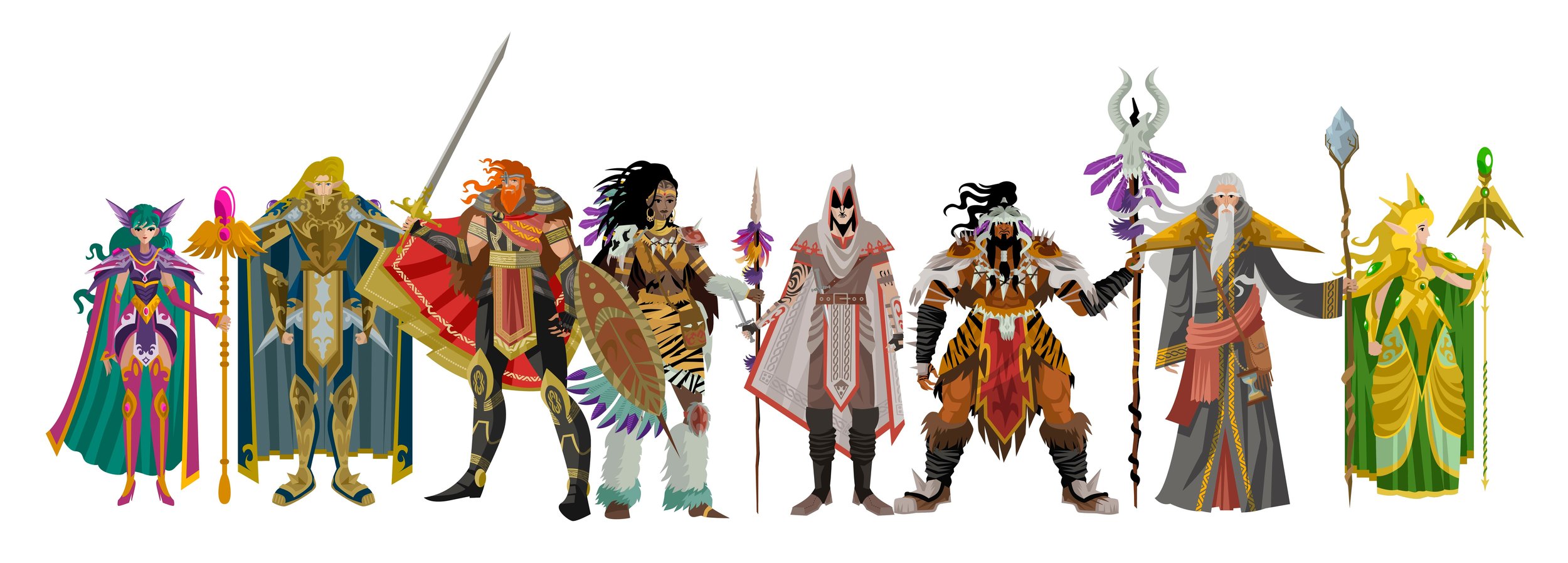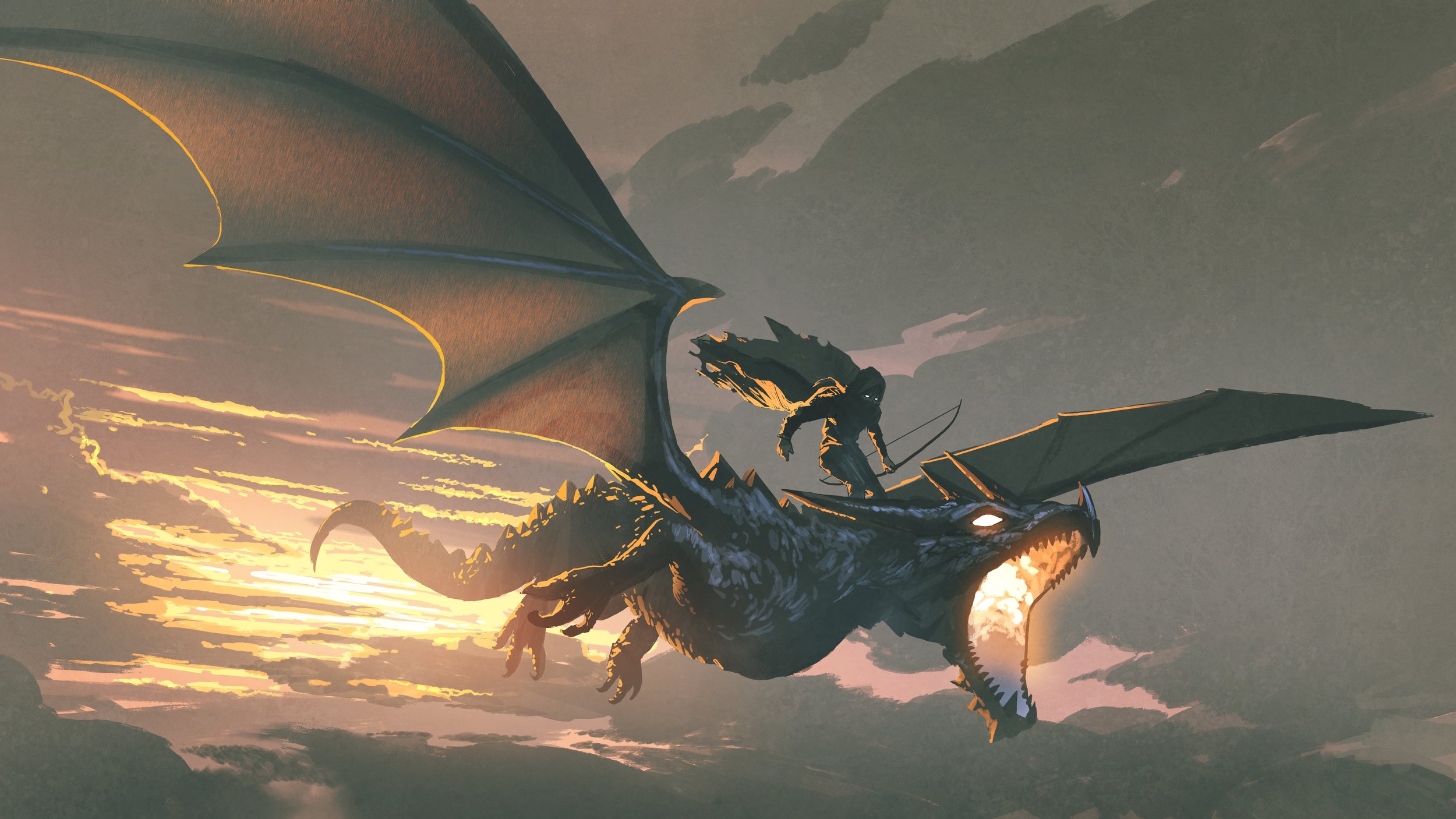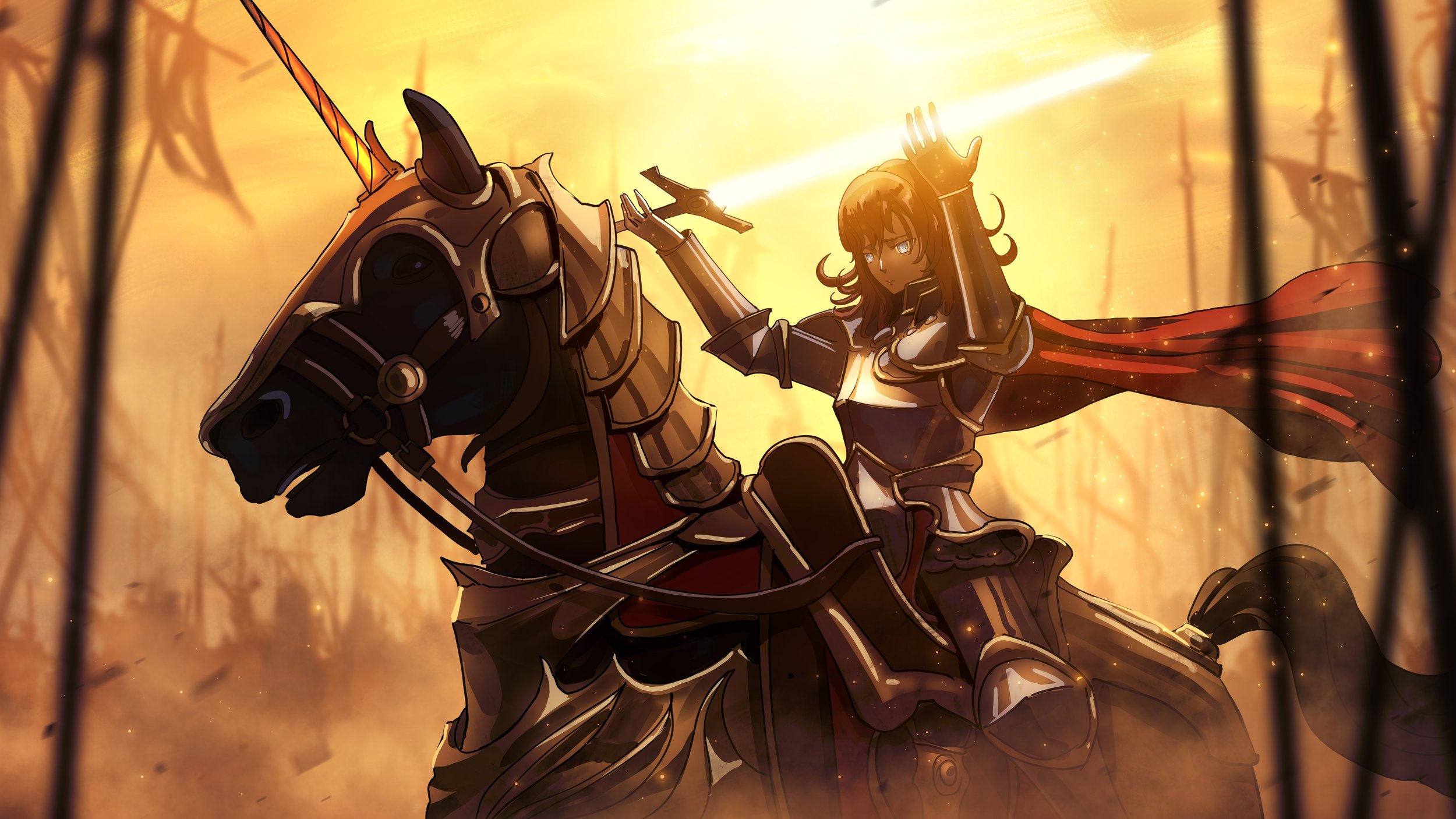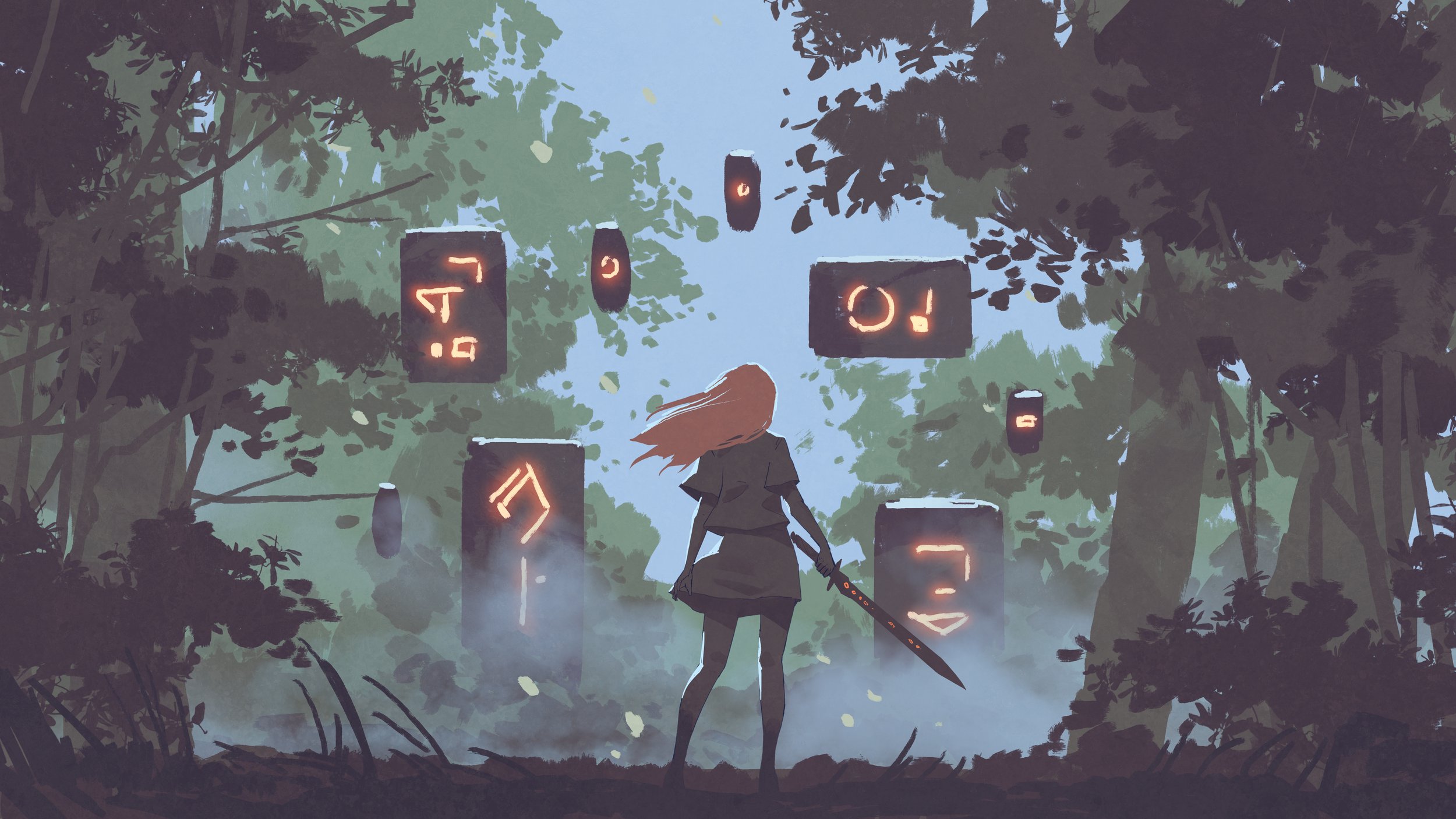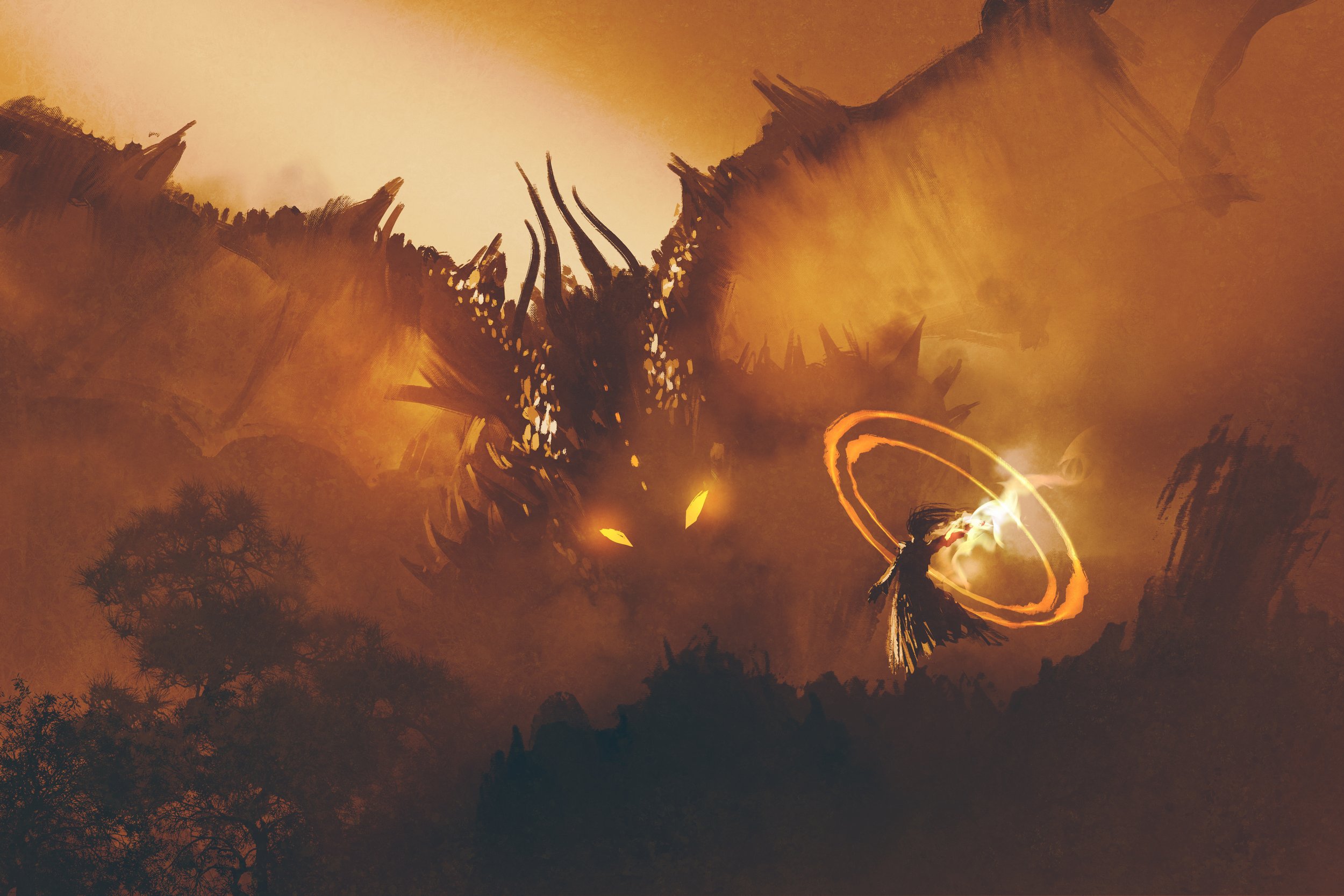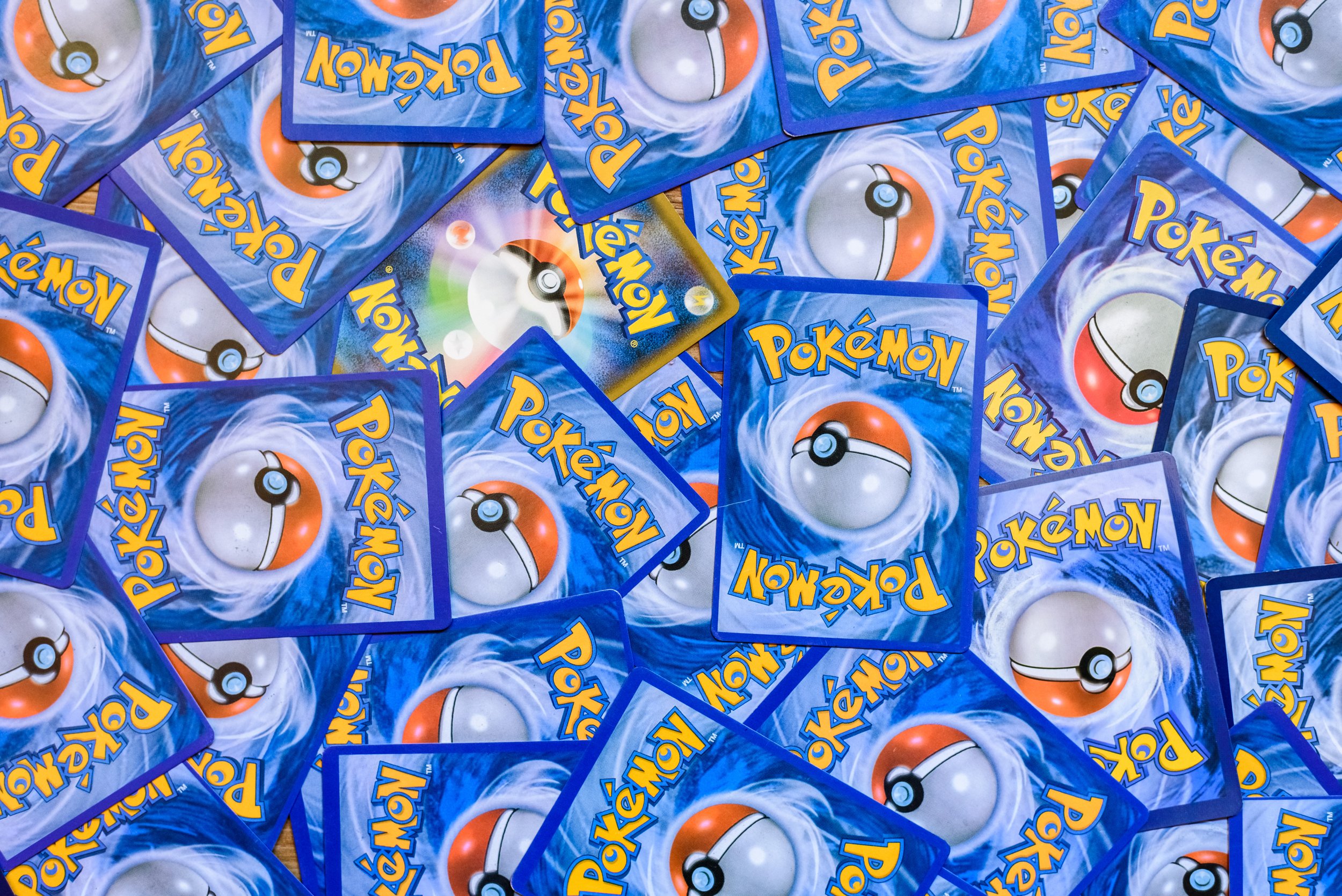The Importance of Character Development in RPGs
Why developing our characters can turn a good RPG into a great one.
Roleplaying games are an exciting experience. Many designers and game masters will discuss the importance of world-building, storyline, and action pacing to encourage player engagement. But an often-overlooked element is the value of developing characters over the course of the campaign. As players, our characters and our connection with them can drive engagement and immersion and make the difference between a good RPG experience and a great one.
What Is Character Development?
Character development is the process where individuals learn and internalize moral concepts, gain alignment with their conscience, and embrace their values and beliefs through experiences and overcoming challenges. It is a common theme in literature as the protagonist finds personal growth as they travel their story arc. An example is the Hero’s Journey, where a character will begin as a “nobody” and transforms into a leader and hero by the end of their adventure.
“Plot is no more than footprints left in the snow after your characters have run by on their way to incredible destinations.”
― Ray Bradbury
In RPGs, we, the player, decide our characters’ actions. We help them to overcome obstacles, face down their adversaries and deal with the consequences of their actions. But in the course of these experiences, we can evolve them from their initial two-dimensional creation into something truly unique with greater depth, personality, and meaning. It is our decisions that can transform them into true heroes. And in doing so, we can gain greater enjoyment in the game.
What Are the Benefits of Having Character Development in an RPG?
Several studies have shown that game character development drives player engagement and enjoyment. But it also makes the game feel more immersive and memorable. Adding character development to a game can even impact the players’ personal development.
Emotional Connection with Our Characters
Even though our characters are fictional creations, they become unique three-dimensional personalities intimately known to us as players as we play them. A 2015 American Journal of Clinical Hypnosis study found that fantasy role players gain empathy for their characters. If we admire or sympathize with them during their character development, they become more relatable and deepen our personal connection to them.
Another study on player and character engagement found that when we have a goal-related or empathetic connection with our characters, there is greater engagement by the player. The factors of character recognition, knowledge, and evaluation of their actions and personality can all contribute to greater player engagement within the game.
“My characters are quite as real to me as so-called real people; which is one reason why I’m not subject to what is known as loneliness. I have plenty of company.”
― William S. Burroughs
This player-character relationship also drives increased player satisfaction. Media studies have shown that our disposition towards a character influences our enjoyment of the experience. But a 2021 study in Frontiers in Psychology went deeper, looking specifically at RPGs and character development. Researchers found that when players did not relate to their character, there was significantly lower satisfaction in the game. But when engaging in complex, interesting, and evolving characters, there was a much greater sense of player enjoyment.
Even though our characters are unique beings, an element of ourselves naturally comes through during roleplaying. This personal connection can also drive personal development and growth for the player. (Read more in How Our RPG Characters Drive Our Personal Development.)
Deeper Immersion into the Game World
While character development can increase player engagement, interesting and evolving characters can also make the game feel more immersive. Just as real people change over time, having characters that react and grow from their experiences will make them feel more realistic. As a result, we pay closer attention to them, absorb more details of the game world and experience ourselves.
“When you master role-playing, you become immersed in an activity that is peerless among leisure-time pursuits.”
- Gary Gygax
A US study examined how our characters impact our suspension of disbelief when playing in fantasy worlds. There was little sense of immersion when players had a low personal connection to their character. As players saw themselves in their character, there was a significantly higher feeling of being part of the game world. But, when players saw their characters as independent evolving beings, there was the greatest sense of game-world immersion. These players also experienced the highest level of care and personal responsibility for their characters. This sense of accountability to our characters also contributes to greater player engagement.
More Satisfying Campaigns
Characters that evolve with the narrative help to bring the story to life. But they also contribute to a sense of flow and progress throughout a campaign. Characters that grow organically with the story can make a game advance more smoothly.
To work on our character’s development, we must connect to them and the obstacles that they face. Humans enjoy a feeling of achievement and a path towards mastery. With intentional character development, we keep a sense of challenge in the game and look for overall progress as roleplayers. And by doing so, players are less likely to become bored or lose interest during slower periods of the campaign.
As we engage with our characters and help them to evolve, we are more drawn into the story. True character development is not an immediate process; making this sense of progression is important not to a single session but to the overall campaign. Wanting to know what happens next, engaged players are less likely to miss sessions and stick with the game.
“Weakness of attitude becomes weakness of character.”
- Albert Einstein
Finally, we are all drawn to a sense of purpose and meaning. We naturally seek the ability to grow and improve over time. As we connect with our characters and help them achieve these elements in their fictional lives, we gain similar satisfaction as we would for ourselves. This experience creates meaningful and lasting memories in the player, making a campaign with real character development a genuinely memorable experience.
How to Drive Character Development in RPGs
Even though GMs spend hours designing fantastic worlds and outstanding campaigns for their players, the characters in those worlds often never grow beyond their initial description. Players level only physical skills and fighting stats but never develop their character’s personality and moral character. Character development in an RPG is a choice and one that many players and DMs shouldn’t ignore.
Throughout a campaign, evolving characters may be making different and more rounded and meaningful decisions than when the story first began. But those not developing may start to feel flat and predictable after only a few sessions.
“There is still SO much to explore with this wild bunch of weirdos, and I, for one, CANNOT wait!”
- Matt Mercer
As a game master, one of the best ways to drive character development is to create challenges for the characters, not only physical fights but also by introducing conflicts, situations, and choices that may go against or challenge a character’s belief system. Are there situations where to succeed, a character must overcome their flaws? Perhaps a challenge must be overcome for a character to achieve their ideal. Or a conflict that tests their bonds and belief structure?
A great way to get players thinking about character growth is to ask them what they want their character to become instead of just what they want their character to do. Reward players who push their characters and grow into more fully rounded personalities. An excellent suggestion by Beyond the Horizon Games is to level characters based on their in-game actions instead of skills points on a chart. But in the end, it is not actually the DM’s responsibility to grow a player’s character.
“Create living people; people not characters. A character is a caricature.”
- Ernest Hemingway
In the real world, our personal development is up to us. We choose how we react to challenges. No one but ourselves can decide to take on the hard work to overcome our challenges and issues. While others can support our journey, we alone must accept responsibility for our actions and address our flaws. The decision of personal growth is one that only we can make for ourselves.
In RPGs, character development is no different. While a DM can create opportunities for character growth, it is ultimately the player's responsibility. We can keep our characters strictly as created, making the same choices repeatedly, keeping them in a box of limited mindsets and feeling stuck. Or we can let them grow and evolve into something greater than they were before. The choice is ours, for both our RPG characters and ultimately for ourselves.
Author:
Laurie Trueblood is a writer and life coach that enjoys fantasy, science, psychology, and everything nerdy. As the founder of Adventures to Authenticity, her mission is to help others level up and become the best versions of themselves.


